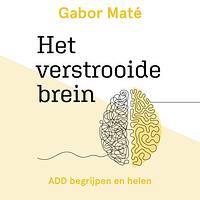Take a photo of a barcode or cover
informative
informative
slow-paced
slow-paced
I have very mixed feelings about this. It seemed one-sided, and set extremely unrealistic expectations for adults (parents/teachers/etc) around kids with ADD. I’m also unsure about the studies he cites (?), shows its age as this might’ve been readily accepted as truth in 1999, but now I have a hard time accepting his monologues as truth. Also horrified that he ends the book by basically saying “you can stop adhd by just showing love to yourself and others.”
I have found this book very difficult to read as an ADD reader and a parent. There are a few useful sections, however I agree with some of the other readers on here, it is very triggering. I felt quite overwhelmed thinking over the chapters that explore family blame and can feel very negative. All in all I really hoped to gain a positive insight into ADD and ways to continue balancing life, I came away feeling low and frustrated. I cannot say that I recommend this book to anyone that is parenting whilst also navigating ADD.
Still want to finish. Ran out of time
informative
inspiring
medium-paced
informative
The below is copied from my previous note/entry. Basically, I never came back to it after that update and felt overwhelmed by the idea of having to continue evaluating what I wanted to take from it and what I might decide wouldn’t work for me.
I understand why my coworker warned that this book often falls under scrutiny 😞 I appreciate that there’s discussions that DNA cannot be the sole cause of ADHD, but it feels like the author is arguing the opposite, rather than acknowledging and interplay between genetics and upbringing. What finally made me want to rant is his argument that after millions of years of selection, it would be unlikely for a disorder to be selected for 😤
He is anthropomorphizing natural selection; it doesn’t choose what traits get passed along. For example, there is absolutely NO positive side to having myopia; nature would never “select for” it. But it affects over 20% of the population. Nearsighted people just aren’t getting eaten by predators they can’t see anymore. (Well, at least not as often as before.)
At this point, I’m taking breaks between listening sessions because I find he speaks outside of his expertise and generalized too often, though I have gleaned some insights. Even a broken clock is correct twice every day 😅
hopeful
informative
reflective
medium-paced




